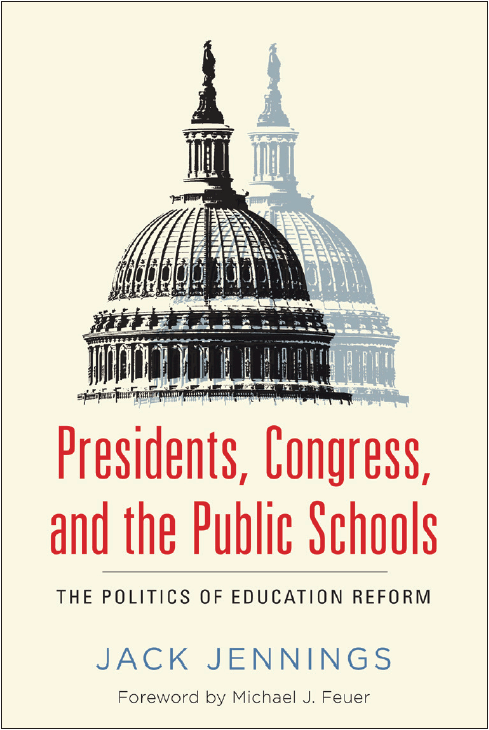The American public has given its grade to national elected leaders for their attempts to improve the country’s public schools. The verdict is an “F” for failure.
But, the public’s alternative to the present policies is also lacking according to the American public’s own views.
These conclusions can be drawn from the 47th Annual PDK/GALLUP Poll of the Public’s Attitudes Toward Public Schools, Aug. 24, 2015, sponsored by PDK, a prestigious educators’ group, and the Gallup organization, an internationally respected polling company.
This split opinion shows that it is time for a thorough re-thinking of how the country is attempting to improve its elementary and secondary public schools.
National Leaders
The federal government’s political leadership has adopted school policies that the public does not support or does not believe will lead to better education.
• 64% of the public believes that too much emphasis is given to testing which is the cornerstone of the No Child Left Behind Act initiated by President George W. Bush, written by U.S. House of Representatives’ Speaker John Boehner (R-Ohio), and supported by prominent congressional Democrats.
• 55% opposes teacher evaluations which include student test scores, a key change pushed by President Obama.
• Only 19% supports the federal government holding schools accountable for what students learn, a major premise underlying both the Bush and Obama education policies.
The Public’s Alternative
The public strongly prefers state and local control of education: 70% or more supports states and local school districts deciding funding, textbook, accountability, and testing issues.
Yet, most major problems facing the schools identified by the public are under the control of states and school districts and so could be solved by them.
• Lack of financial support has been cited in this poll for the past ten years as the biggest problem facing the schools. States and school districts decide the levels of school funding.
• States have adopted programs to use public funds for tuition at private schools, although 57% of the public opposes such vouchers. Indiana and Nevada have state-wide programs, several states have more limited programs, and many states are considering authorizing vouchers.
• States and school districts make nearly all decisions regarding the quality of schools. Yet, only 51% of the public gives an A or B to their community’s schools and only 21% gives the nation’s schools those grades. Incongruously, 72% of parents ranks their eldest child’s public school much higher by awarding that school an A or B. Why are individual schools good but collections of such schools in communities and states not so good?
• Academic standards are important and too low: 67% believes the expectations for what students should learn is important to school improvement, and 39% believes that the standards are too low in their community’s schools. Yet, 54% opposes the use of the demanding Common Core State Standards developed by the states without any federal financial support or input.
• The quality of teachers is the most important issue to address in improving the schools, says 95% of the public. But, states and school districts determine that quality since they control teacher certification, hiring, and other teacher-related practices.
Conclusion
The American public is of two minds: state and local control is preferable to federal control, and yet most of the major problems facing the schools result from state and local decisions. This schizophrenic attitude must be resolved if real improvement is to come to American schooling.
A solution is to make key issues the focus of attention, and to create an approach so that school districts, states, and the federal government can work cooperatively.
My new book, Presidents, Congress, and the Public Schools (Harvard Education Press, March 2015) contains such a proposal: states would be encouraged to adopt research-based improvements while the federal government provides increased funding and more flexible financial aid to help address these basic issues.
The important point is to face the truth: public schools need to do better but that will only occur when there is cooperation in

government, not antagonism.
August 24, 2015
